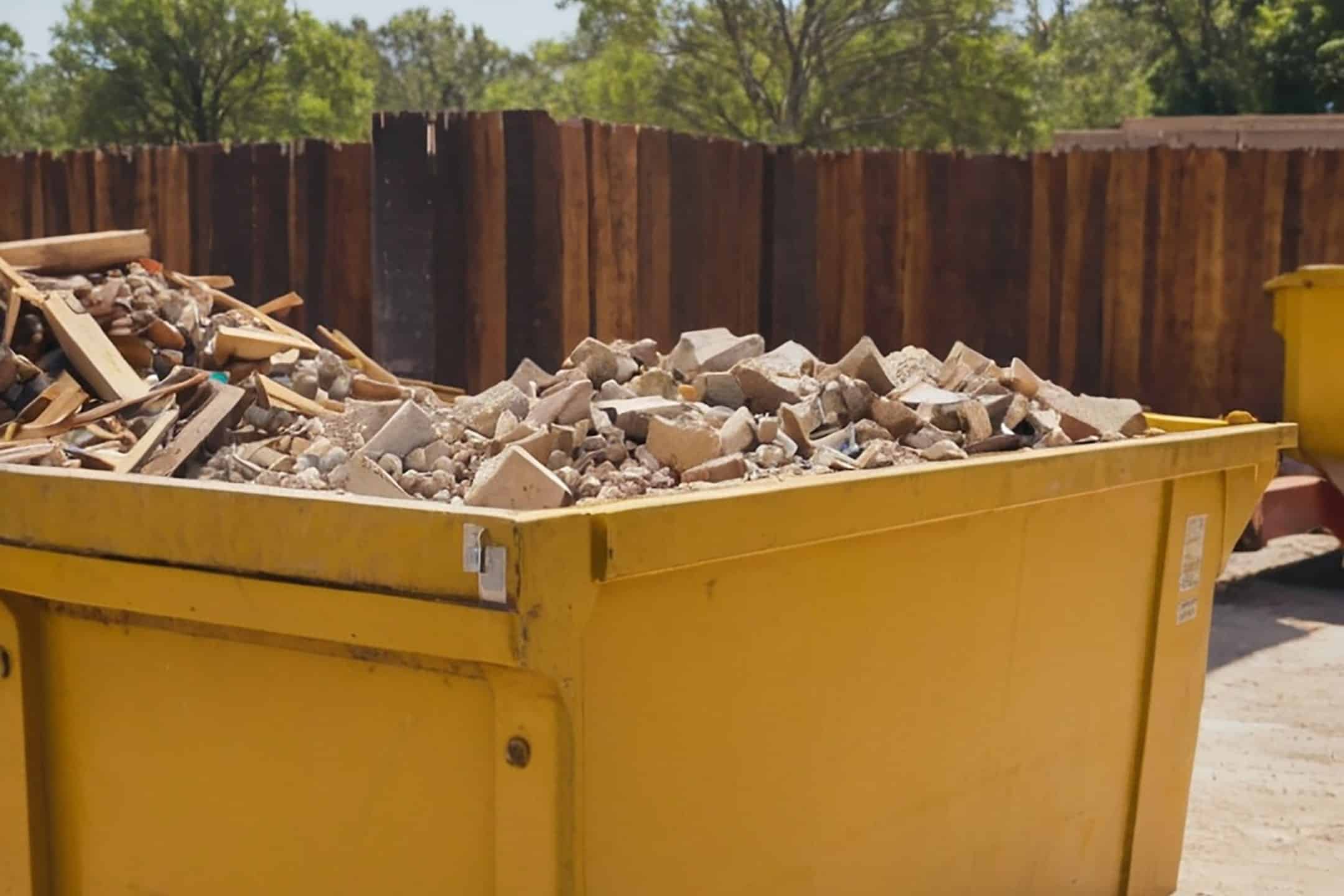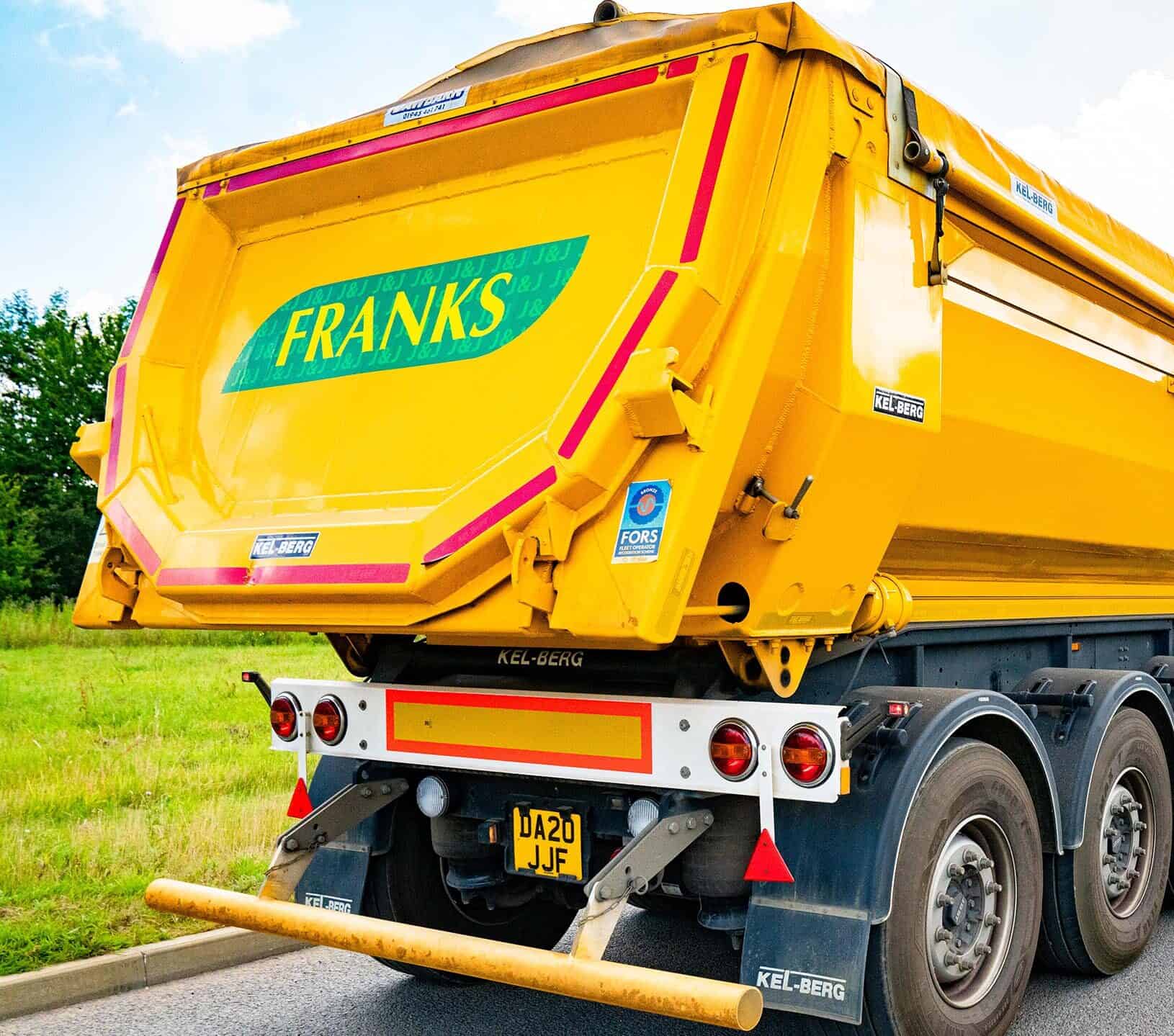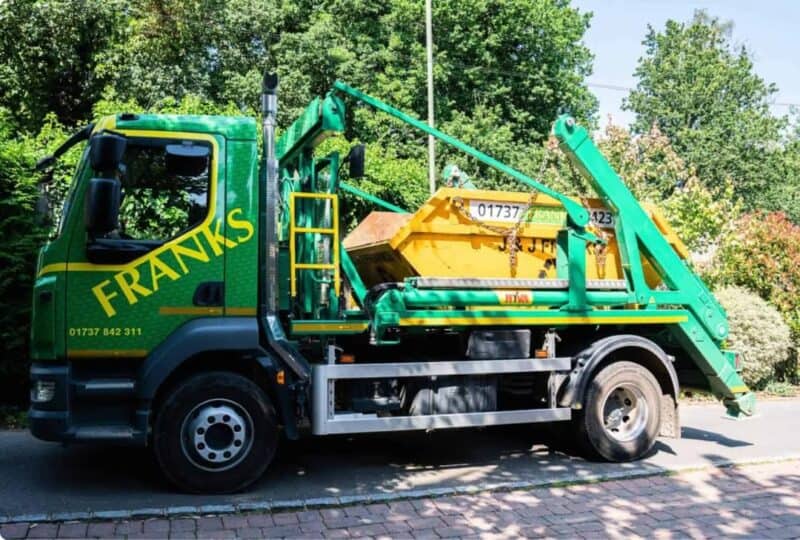Skip hire is essential for modern waste management, offering a practical and efficient solution for disposing of everything from household rubbish to construction debris. In Crawley, skip hire services support both domestic and commercial projects by streamlining the collection and disposal process, helping to keep sites safe, clean and compliant with local regulations.
However, the environmental impact of waste disposal has become an increasing concern. With landfill sites under pressure and climate change at the forefront of public awareness, how waste is managed matters more than ever. The methods used to sort, recycle and dispose of skip contents can significantly influence carbon emissions, resource conservation and overall sustainability.
We explore the environmental implications of skip hire in Crawley, highlighting how local services provided by J&J Franks promote responsible waste handling. From recycling rates and landfill diversion to the benefits of using licensed, eco-conscious providers, we take a closer look at the effect skip hire has on environmental goals.
Waste Generation and Disposal in Crawley
Crawley, like many growing towns, produces a wide range of waste through its residential, commercial and construction sectors. Household waste includes everyday items such as packaging, old furniture and garden debris, while commercial premises generate office materials, retail packaging and food waste. Construction sites add significantly to the overall volume, with materials such as bricks, concrete, timber and metal contributing to the area’s waste output.
Managing this volume of waste poses a number of challenges. Local facilities can become strained, and illegal dumping or incorrect sorting can result in higher landfill use and environmental harm. With environmental regulations tightening and landfill space becoming increasingly limited, Crawley must find ways to reduce reliance on landfill and increase recycling efforts.
Skip hire offers a simple way for Crawley to tackle these issues. By offering a structured, reliable way to collect large volumes of waste from homes, businesses and building sites, skip hire services make it easier to manage waste responsibly.
The Role of Skip Hire in Recycling
Skip hire services in Crawley are a crucial part of the recycling process, doing far more than just collecting waste. Once a skip is collected, the contents are transported to a licensed waste transfer station, where the materials are sorted using a combination of mechanical and manual techniques. At J&J Franks’ facilities, waste is separated into distinct categories including wood, metal, plastics, aggregates and general waste, allowing recyclable materials to be diverted from landfill and sent on for further processing.
Crawley has made progress in its recycling efforts, with West Sussex County Council reporting an overall household recycling rate of over 50% in recent years. However, commercial and construction waste still make up a significant portion of the area’s total waste volume, making the role of private skip hire companies vital in boosting recycling rates. By ensuring construction and trade waste is sorted and recycled correctly, these services reduce the strain on landfill sites and support wider sustainability goals.
Separating materials like metal, wood and plastic is essential for effective recycling. When these items are correctly sorted at the waste transfer station, they can be repurposed into new products or materials, reducing the need for virgin resources. Skips that are overloaded with mixed, contaminated waste can be harder to process, which is why using a responsible skip hire provider who prioritises waste segregation can make a real environmental difference.

Landfill Impact and Waste Reduction
Improper waste disposal continues to be a major contributor to landfill overflow, particularly when recyclable or reusable materials are not separated correctly. When waste is carelessly dumped or managed by unlicensed providers, much of it ends up in landfill unnecessarily. Over time, this fills up already limited landfill space and also undermines efforts to ensure sustainable waste management.
The environmental consequences of landfill sites are significant. As waste breaks down, it releases methane; a potent greenhouse gas that contributes to climate change. Additionally, harmful chemicals can leach into soil and nearby water sources, polluting ecosystems and posing health risks to both wildlife and humans. Landfill sites also consume valuable land that could be used more productively, creating long-term issues for surrounding communities.
Skip hire services reduce dependency on landfill significantly. By working with licensed providers J&J Franks, waste from skips is diverted away from landfill through proper sorting, recycling and reuse. This ensures that materials with recycling potential, such as metal, wood, soil and plastics, are processed responsibly, significantly lowering the amount of waste that ends up buried in landfill. In doing so, skip hire in Crawley supports both environmental protection and compliance with local and national waste reduction targets.
Sustainable Skip Hire Practices
As awareness of environmental issues grows, skip hire providers in Crawley are adopting more sustainable practices to reduce their environmental footprint. Many companies now implement zero-waste policies, aiming to divert as much material as possible from landfill through advanced sorting and recycling methods. Greener logistics also play a part, with some providers using fuel-efficient vehicles and optimised collection routes to reduce carbon emissions associated with transport.
J&J Franks is among the leading skip hire companies in the region prioritising sustainability. With fully licensed waste transfer stations and a commitment to recycling a large percentage of collected waste, we provide a reliable service that aligns with environmental best practices. By processing materials locally and minimising what ends up in landfill, J&J Franks help Crawley residents and businesses dispose of waste more responsibly.
Government regulations and local council policies also drive responsible waste management. In Crawley and across West Sussex, skip hire providers must meet strict environmental standards to operate legally. These regulations promote transparency and accountability in how waste is handled. In addition, incentives such as reduced landfill tax for recycling and grants for sustainable waste initiatives encourage both providers and customers to adopt more environmentally conscious practices.
The Carbon Footprint of Skip Hire Services
Skip hire services, like many forms of logistics, contribute to carbon emissions through vehicle use and waste transportation. In Crawley, as well as many other towns, skip lorries frequently travel between residential areas, construction sites and waste transfer stations. These journeys, particularly if repeated multiple times a day, can have a notable environmental impact. Emissions from vehicles contribute to air pollution and increase the carbon footprint associated with local waste disposal.
To reduce this impact, many skip hire companies are making changes to how their fleets operate. Fuel-efficient lorries, regular vehicle maintenance and investment in cleaner technologies help lower emissions. Some providers also use route optimisation software to plan collections and deliveries more strategically, reducing unnecessary mileage and idle time on the road. By using fewer journeys to move more waste, companies also improve their service efficiency.
J&J Franks continues to embrace ways to improve the sustainability of our skip hire services in Crawley. This commitment to efficiency and environmental responsibility is reflected in our operations, from streamlined logistics to waste reduction efforts.
Regulations and Compliance in Crawley
UK waste disposal laws ensure that waste is managed in a safe, responsible and environmentally conscious manner. Under the Environmental Protection Act 1990, anyone who produces or carries waste must take steps to store, transport and dispose of it legally. In Crawley, local council regulations support these national laws by setting guidelines for how waste should be handled, particularly when it comes to the use of skips on public land. Permits are required for skips placed on roads or pavements and only licensed waste carriers are permitted to collect and dispose of waste.
The consequences of not following these rules can be severe. Illegal waste dumping and fly-tipping not only harm the environment but also come with significant financial penalties.Those found guilty of fly-tipping can face fines, prosecution or even imprisonment. These measures are in place to protect the community, public health and local ecosystems.
Using a licensed skip hire provider is one of the easiest ways for homeowners, contractors and businesses to stay compliant. J&J Franks ensure all waste is collected, processed and disposed of in accordance with current laws and environmental guidelines.
How Residents and Businesses Can Reduce Environmental Impact
Reducing environmental impact starts with making informed decisions when hiring a skip. Choosing the right skip size is one of the simplest ways to avoid unnecessary waste and cost. Selecting a skip that’s too large can result in underused space, while one that’s too small may require an extra collection. Proper waste segregation is equally important. Separating materials such as wood, metal, plastics and general waste helps improve recycling rates and reduces the volume of material sent to landfill.
In addition to using skip hire services, Crawley residents and businesses are encouraged to make use of local recycling centres for items that can’t be placed in skips, such as electrical goods or hazardous waste. These facilities are equipped to handle specific waste streams safely and responsibly, ensuring maximum recycling potential while complying with local regulations.
Working with an environmentally responsible skip hire company makes a significant difference. At J&J Franks, our Crawley skip hire service prioritises sustainability by utilising licensed waste transfer stations, maximising recycling and ensuring all materials are handled according to strict environmental standards.









